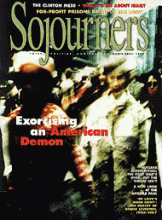Jacqueline Parks first novel, The Secret Book of Grazia dei Rossi, is worth reading just for the story and its heroine. As a bonus, one gets to take a ride through the Italian Renaissance, a time of great art, religious frenzies, and brazen contradictions such as furs and jewels worn in streets clogged with human waste. Grazia dei Rossi, of a Jewish banking family, raised in the humanist tradition to think for herself, describes the upheavals of her life, and thereby of the age.
As a scribe for the Christian ruler Isabella Gonzaga (a historical figure), Grazia writes for the benefit of her son, "so that you may know whence you came and on whose shoulders you stand....What I propose to set down for you are the secrets of the heart." The events of her life will also give little Danilo something to go on as he must choose between the two worlds of his mothers life. She tells him of her illicit love for a Christian lordJews could be burned at the stake for such presumptionand of how she is saved from ruin by her education and strong spirit, by her family, and by an offer from a famous Jewish physician.
Parks gem of a story is set in several frames. The historical frame: Park comes across and then researches the letter of a young Jewish woman who Isabella Gonzaga wishes to convert, promising the girl "a gracious husband who longs for you so much that the wretched man...is pining away and falling apart like a snowflake that the sun has discovered." Grazias character is based on this briefly mentioned Jewish maiden. Within this frame, the prologue sets Grazia to work on her libro segretto, a secret book for her son, and the epilogue lays her story to rest. Finally, at the center stands her tale told by "her own exquisite hand," as she says of her job as a scribe.
Read the Full Article
